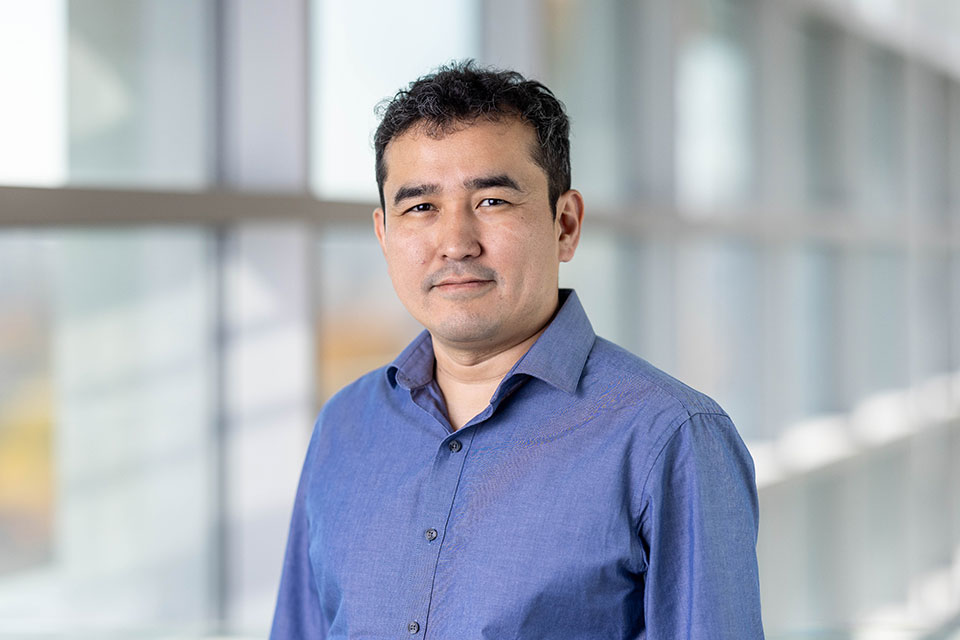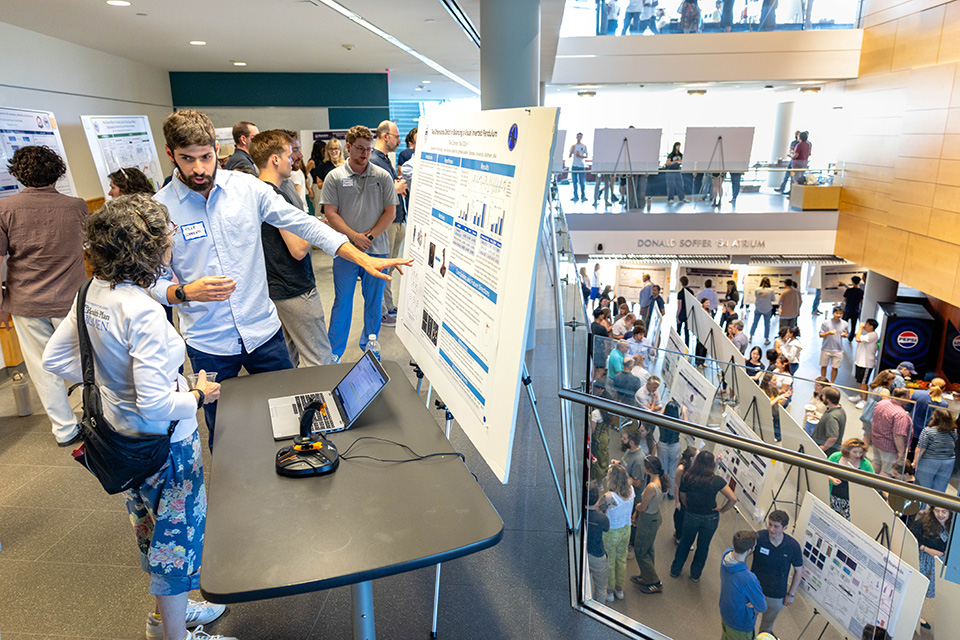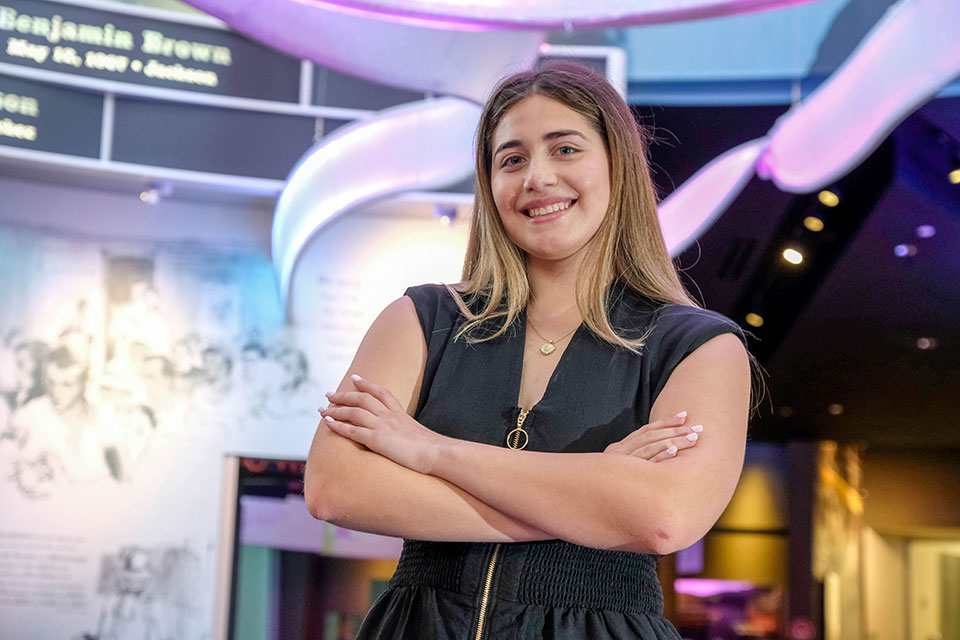Brandeis researcher receives Pew biomedical science grant
Funding will support deeper understanding of neural connections
August 13, 2025

Yerbol Z. Kurmangaliyev
Yerbol Z. Kurmangaliyev, assistant professor of biology at Brandeis University, has been named to the Pew Scholars Program in the Biomedical Sciences.
He is among 22 early-career scientists to receive four years of funding to uncover fundamental insights about human health and disease, the Pew Charitable Trusts announced this week.
“I am honored to be among colleagues who received this award before me, and I hope to follow their example,” Kurmangaliyev said.
Kurmangaliyev’s research focuses on genetic principles that guide the formation of complex neural circuits.
“Brain function relies on the precise wiring of neural circuits,” he said. “Billions of neurons can find and recognize their specific targets in the immensely crowded environment of the developing brain. We aim to uncover how genes and genomes encode the wiring diagrams of brain circuits.”
The 2025 class of Pew scholars — all early-career, junior faculty — marks the 40th group to be awarded funding since the program’s founding in 1985. They join a rich network of more than 1,000 Pew-funded scientists and will have opportunities to meet annually to exchange ideas and form collaborations across disciplines.
“Pew-funded scientists have long contributed to biomedical research discoveries that have improved human health,” said Lee Niswander, a 1995 Pew scholar and chair of the program’s national advisory committee. “I’m confident this new class of scholars, with their innovative and creative approaches to scientific research, will continue this tradition.”
Scholars were chosen from 209 applicants nominated by leading academic institutions and researchers throughout the U.S.


